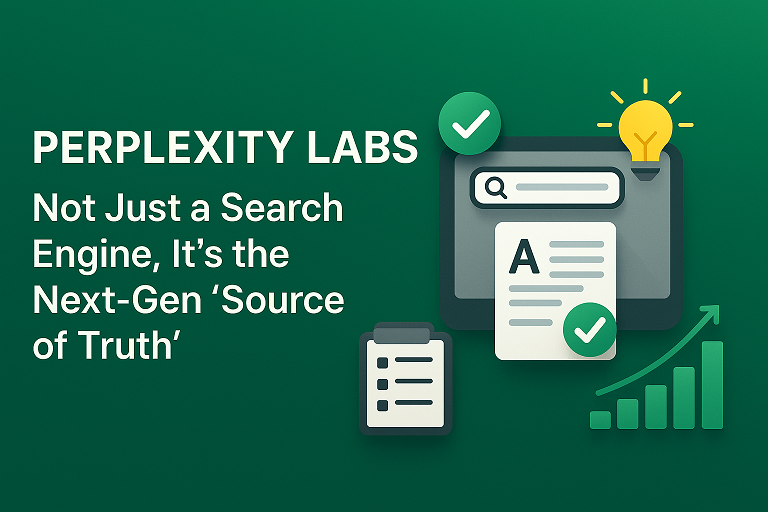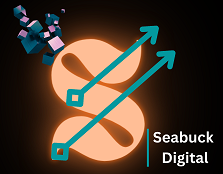
Introduction
Why does searching feel like treasure-hunting in a flooded attic? You type a question, click ten links, and patch together an answer from half-a-dozen pages. Traditional search gives you pointers — not the finished blueprint. Perplexity Labs aims to change that by combining live web retrieval, transparent sourcing, and project-level execution so you get a verifiable answer and actionable deliverables in one place. Perplexity’s answer engine searches the web in real time and synthesizes findings into concise replies with sources—so you don’t have to stitch together evidence yourself.
Think of it like the difference between handing someone a stack of receipts (traditional search) and handing them a neat expense report and dashboard that explains the numbers (Perplexity Labs).
I. The “Truth” Engine (Pillar 1: Accuracy & Verifiability)
Real-Time, Comprehensive Sourcing
Perplexity’s core advantage: it doesn’t rely solely on a static training dataset. Instead, it queries the live web, aggregates multiple contemporary sources, and synthesizes them into an answer. That real-time retrieval means you’re getting what’s actually written on the internet now, not what an LLM memorized months ago. This is a huge deal for time-sensitive domains — news, finance, policy, and fast-moving tech topics.
How live-web retrieval changes the game
Live retrieval shifts responsibility from “trust the model” to “verify the evidence.” If the web has changed, the answer can change — which is what you want when facts move fast.
Source Transparency: Clickable, In-line Citations
Perplexity places clickable, in-line citations next to key claims so you can jump straight to the source. Instead of playing telephone with the internet, you see exactly which article, paper, or report the answer used. That built-in provenance functions like a fact-check layer: read the excerpt, click the link, confirm the context. It turns passive answers into auditable assertions.
The user-as-fact-checker
This design treats the user as an active verifier. The AI does the heavy lifting of finding and summarizing, and you do the final read-through — fast, transparent, and defensible.
Mitigation of Hallucination
“Hallucination” (i.e., when an LLM invents facts) is the Achilles’ heel of many generative systems. Perplexity’s strategy to reduce this risk is simple but effective: anchor model output to retrieved web content and show those sources. When the model answers, each factual nugget is traceable to a source it used for synthesis — that cross-referencing reduces the chance that a confident-sounding lie slips into your report.
Cross-referencing, provenance, and audit trails
Because every claim can be tracked to a supporting link, you have an audit trail. That’s crucial for professional workflows — legal, finance, academia — where a traceable source is non-negotiable.
II. Beyond Search: Project Execution & Synthesis (Pillar 2: Next-Gen Capabilities)
From Answer to Asset
Perplexity Labs goes beyond a single answer — it builds finished work products. Want a market research report, a competitor spreadsheet, a dashboard showing KPIs, or a simple web app prototype? You can prompt Labs in natural language and get a polished deliverable (often including charts, code snippets, and downloadable assets). It’s not just a summary; it’s the output you’d hand a manager.
Reports, spreadsheets, dashboards, simple web apps
Labs can create multi-page reports, populate spreadsheets, generate charts, and even produce basic interactive web pages — all compiled from live research and executed steps in a single workflow. That reduces context switching and manual assembly time dramatically.
Multi-Tool Orchestration
What used to take a team — researcher, analyst, designer, developer — can now often be orchestrated by a single “Lab” thread. Perplexity runs deep browsing, executes code, produces charts, and stitches everything into a cohesive output. It’s a conductor for different tools rather than a one-trick generative model.
Deep web browsing + code execution + charting
By combining data retrieval with executable code and visualization, Labs turns raw facts into presentable, interactive assets without exporting and re-importing across apps. That’s where the “next-gen” label becomes real.
The ‘AI Team’ Analogy
Imagine an agile team that includes a research analyst, a data scientist, and a front-end dev — but all accessible via conversation. Labs behaves like that team: it researches, validates, computes, and then formats a deliverable. For busy professionals, that’s the difference between a helpful answer and a completed task.
III. Conversational Intelligence & User Intent (Pillar 3: Usability & Guidance)
Contextual Dialogue
Perplexity’s threads maintain context so you can ask follow-ups without repeating yourself. Start with “Summarize the latest on X,” then ask, “Can you chart the top 3 datapoints across the last 5 years?” and the lab remembers the scope. That continuity turns research into a conversation, not a string of one-off queries. It feels like discussing a problem with a teammate rather than interrogating a search box.
Follow-ups without losing the thread
This makes iterative research smoother — you refine the brief, the Lab refines the output.
Focus Modes & Domain Filters
To be a true source of truth, answers must pull from the right authority. Perplexity offers focus modes (and Pro features) that let you bias searches toward peer-reviewed literature, financial filings, or reputable news outlets — narrowing the universe of truth for a given task. That’s essential if you care more about domain authority than broad recall.
Academic, Financial, Legal, and more
If you’re writing an academic literature review, you want scholarly sources; if you’re doing investor research, you want SEC filings and market data. Focus modes help align sources to intent.
The Pro-Active Copilot
Labs can also suggest better questions, propose next steps, or recommend data visualizations. It doesn’t just wait for instructions — it nudges the research forward, which helps users unfamiliar with a topic or those who want to run faster, smarter research sprints.
IV. Limitations, Safeguards & the Publisher Debate
Where Perplexity wins—and where you still need human oversight
Perplexity reduces friction and raises the baseline of research quality, but it isn’t a magic truth oracle. The AI’s syntheses are only as good as the sources it finds — and sources can be wrong, ambiguous, or paywalled. Always spot-check critical claims, especially in high-stakes contexts like medicine, law, or regulated finance. The platform is a huge productivity multiplier, not a substitute for domain expertise.
Publisher concerns and the ethics of indexing
Perplexity’s transparent sourcing is a strength, but the company has faced criticism and scrutiny from publishers and investigative reporting about how content is indexed and used. These debates matter: they shape how responsibly the web can be used as an AI knowledge base, and they influence publisher relationships and licensing models. Users should be aware that legal and ethical norms around indexing and summarization are still evolving.
Conclusion
Perplexity Labs reframes what an AI search tool can be: not just a faster way to find links, but a platform that synthesizes, verifies, and produces actionable work products. By pairing live web retrieval and transparent citations with code execution and multi-step project orchestration, Labs sits at the intersection of accuracy, productivity, and conversational intelligence. It won’t replace human judgment, but it will change how we work — turning fragmentary evidence into auditable deliverables and re-defining what it means to have a single “source of truth.”
FAQs
Q1: Is Perplexity Labs better than a regular search engine for research?
A1: For end-to-end research that needs synthesis and deliverables, yes — Labs saves time by combining live sourcing, citations, and asset creation. For quick link lookups, a traditional search may still be quicker.
Q2: How does Perplexity reduce hallucinations?
A2: By anchoring generated answers to live web retrieval and showing inline citations, users can verify claims. Cross-referencing multiple sources further reduces fabricated assertions.
Q3: What kinds of deliverables can Labs produce?
A3: Labs can generate reports, populate spreadsheets, create charts and dashboards, and even build simple web app prototypes — all from natural language prompts.
Q4: Are there ethical or legal concerns using Perplexity to summarize publisher content?
A4: Yes — there have been public debates and critiques about how AI systems index and use publisher material. Perplexity and publishers are actively navigating licensing and attribution issues, so watch for evolving policies.
Q5: Should professionals rely on Perplexity as their only “source of truth”?
A5: No. Use Perplexity as a powerful, time-saving copilot that provides transparent evidence and deliverables — but supplement it with expert review and human validation for high-stakes decisions.

